“It’s Hard To Go Back To Critiquing If Your Own Movies Aren’t Any Good”: A Conversation With Film Journalist & Filmmaker Neville Pierce
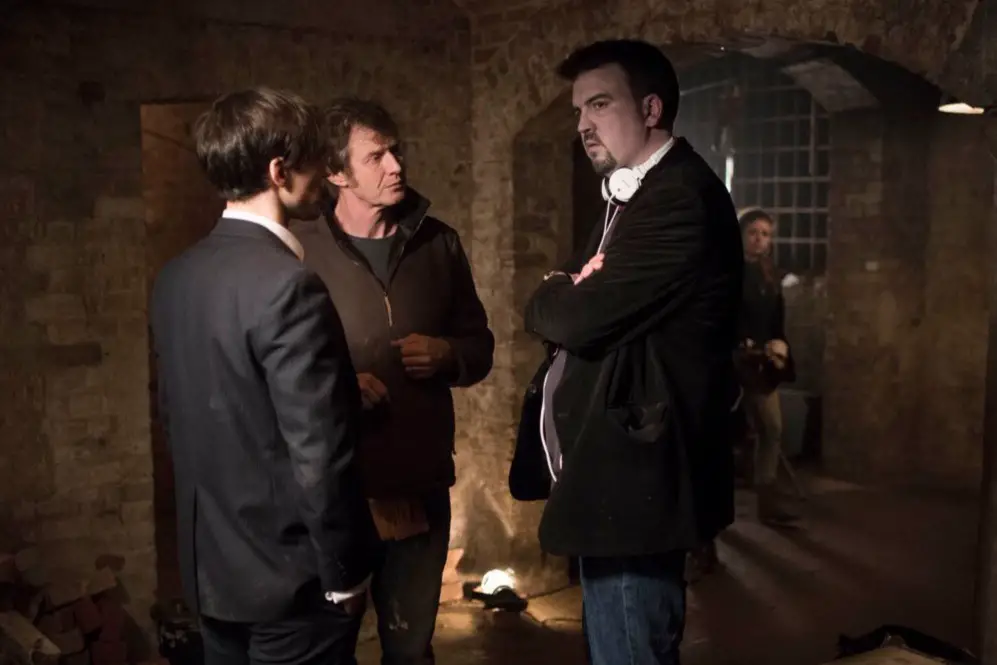
Musanna Ahmed is a freelance film critic writing for Film…
Neville Pierce, who has been described as the “Truffaut to Fincher’s Hitchc*ck”, has perhaps accomplished it all as a film journalist in Britain within a remarkable twenty-year career. He’s written for BBC, The Guardian, The Daily Telegraph, been the Editor-at-Large for Empire Magazine, and the editor for Total Film, which is where his relationship with David Fincher blossomed – he was the only journalist to visit the sets of Zodiac and The Curious Case of Benjamin Button.
Not only has he proved his abilities as a journalist, with his new short films he proves to have a knack for filmmaking. First there’s the excellently constructed Bricks which features first-rate performances from Jason Flemyng and Blake Ritson. Ritson is especially unsettling as the icy stockbroker who’s brought in a builder (Flemyng) to renovate his wine cellar. Like The Cask of Amontillado, the Edgar Allan Poe short story it’s based on, Bricks is delightfully deranged. The co-signs by Fincher and Scott Frank are unquestionable.
Then there’s Ghosted, a rom-com that’s wickedly funny and heartening in equal measure, following a woman (Alice Lowe) going on a series of dates where she’s haunted by the presence of her late husband. Like Bricks, it’s well-acted. The abundance of amusing performances and one-liners all contribute to the quaint atmosphere that evokes the best of various whimsical indie auteurs.
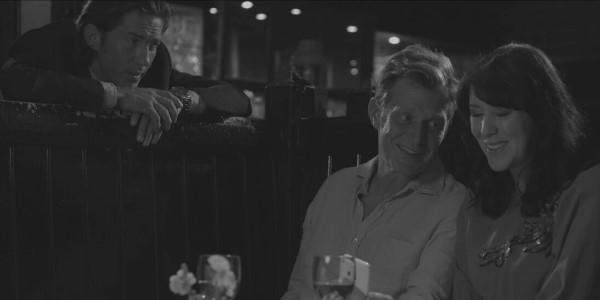
The third short is Lock In, which revolves around a landlord and his daughter in a pub on a night where a stranger barges in and confronts them. It’s a mesmerising thriller that grabs your attention from the get-go and locks it in for a rattling eleven minutes, challenging all sorts of cinematic and sociological expectations along the way.
The three films, all recently released but shot some time ago, are very different to one another but share a savageness and a strong feeling of suspense that make ten minutes more exciting than many feature-lengths in the multiplexes. Soon enough, Pierce intends to be behind a feature himself, and his three shorts should give considerable impetus to financiers as they signal a bright future for the journalist-turned-filmmaker.
Film Inquiry had the opportunity to talk to Neville Pierce about both his films and his career as a journalist, where we chatted about the creative process of each short, the changes he’s seen to film journalism since the turn of the century, and how he feels about the prospect of choosing one over the other.
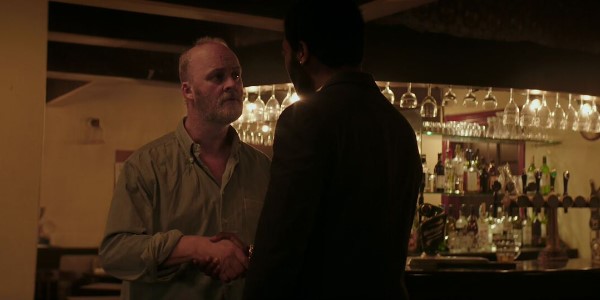
Musanna Ahmed for Film Inquiry: Hi Nev. I’m excited to talk to you because I saw your films and thought they were really good.
Neville Pierce: Oh thank you very much.
I very much enjoyed them and I have to say they were all quite dark so the first question I want to ask is, are they by any chance influenced by David Fincher, who you have a storied relationship with?
Neville Pierce: (laughs) I guess it’s like what came first, the chicken or the egg. I’ve always liked his films, I even like Alien 3 more than he does. Seven was a film that had a big influence on me when I was at university, Fight Club too. It’s not a conscious decision to ape any particular style, I don’t know that you can necessarily control too much of the stuff you wanna make. It’s just the stuff that grabs you and won’t let go. But if you wanted to say that they had thematic similarities or anything then I’m more than happy with that (laughs), I’m never gonna complain about that comparison.
Talking about the material that grabs you, how was the creative process working with your writer Jamie Russell?
Neville Pierce: Jamie and I wrote the first one, Bricks, together and then we were gonna make Lock In next but then Jamie did a first draft that felt like it didn’t need me to rewrite so I just gave notes. More-or-less, the same thing happened with Ghosted, which I think was written afterwards but ended up coming together quicker than Lock In because Lock In had issues with scheduling, so we ended up shooting Ghosted second.
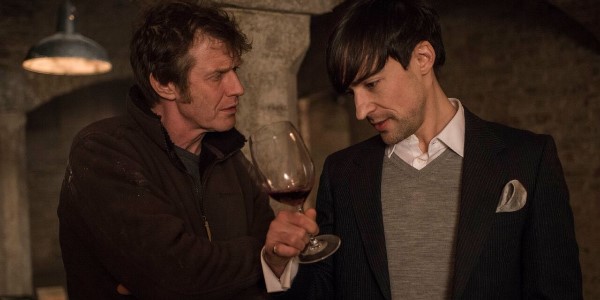
As well as the writing, I also want to ask about the cinematography because I thought the compositions were really strong so I’d like to know what influenced the look of your films and how your collaboration was with cinematographers Flemming Jetmar and Sam Renton?
Neville Pierce: Sam and I had known each other for a while. We talked about doing a feature together… one day we will do a feature together. So we spent quite a lot of time talking through the look of Bricks and I would send him artwork or photographs, stuff that I thought captured the feel of it, I’d sometimes just reference films. You try and get everybody on the same page roughly, so everyone knows what type of look you’re going for.
We ended up doing very rough storyboards together but I think one of the reasons it works is because we spent a lot of time talking it over and Bricks got pushed a couple of times because of location issues. So, we went through one version of doing it and took a couple months away to do our other jobs, then came back and went over that list again and came up with different ideas. With Flemming on Ghosted, it all came together really quickly because it was just a question of when Alice (Lowe) was available. We had very little money for it so that’s one of the reasons we shot it in black and white. Black and white looks classy right?
For a story about death, it’s certainly relevant.
Neville Pierce: Yeah and there are Woody Allen movies which were big for me when I was getting into film, like Annie Hall which I think was originally shot on colour, and obviously Manhattan. The challenge of Ghosted was taking a series of dates and trying to make them visually interesting. But, ultimately, that film is all about the performances and the geography of making sure the ghost character can interact with the others without everyone getting thrown off.
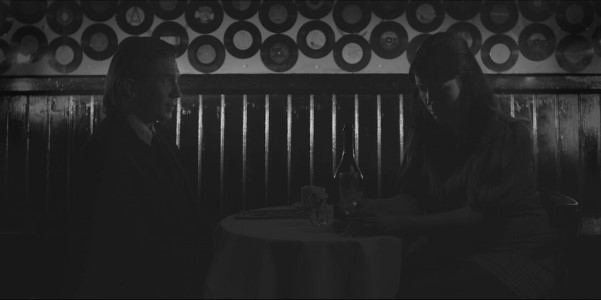
Then on Lock In, I think it was, again, going it over and over with Flemming and talking as much as we could. The biggest challenge for that one was finding a location, which is a pretty boring answer but we scoured so many pubs and trying to get a pub that you could use without it costing you a fortune or the fear of getting your kit nicked was quite difficult (laughs). In the end we went to Wimbledon Studios and used a set.
With Lock In you have interesting overhead shots and effective use of background/foreground, did you have to storyboard for that one too?
Neville Pierce: I think we might have sketched some stuff out but I don’t think we story boarded a lot. When I say ‘story boarded’, I just mean getting pieces of paper and doing bad drawings. Most of it was planned though, we had an idea of what we wanted to do and on the day, it also depended on what the actors wanted to do too. On a couple of occasions, because of economy and in terms of time, we were gonna shoot it a different way.
There’s one scene in the middle of Lock In which is all played in one. It’s a scene I ended up actually really liking but it was played in one because we were running out of time and I knew we needed to compress things. It sounds fairly dull and prosaic but those restrictions can make you shoot in a more inventive way when you’re thinking “Okay, how can make sure everyone is present in these scene and we catch their performances and the changes?” A lot of that comes from watching films over and over again and asking yourself how they did it, how did Spielberg capture this or how did Fincher do that, and then you try and do your half-assed version of it (laughs).
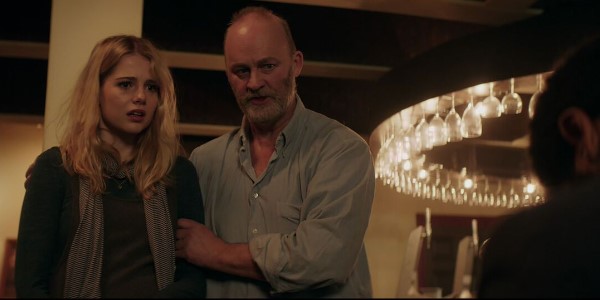
MAJOR SPOILERS FOR LOCK IN
The big twist in Lock In is very timely given the conversation around predators in the film industry and the veracity of accounts being questioned so do you think that gives the film a new light after you shot it in 2015, I believe?
Neville Pierce: Yeah it was 2015 and sadly the issues of deceptions and predators was relevant then as much as it is now. On one level, the film is about the lies we choose to tell and what we choose to believe, and on another it’s about looking beyond the obvious and what the stereotypical view of a person may be, which is something I find myself going back to in other projects too, including Bricks. But yeah sadly it is relevant and unintentional, it’s just the way things fell.
SPOILERS END
You mentioned that these films are about the performances. You managed to cast some great actors, including some familiar faces like the aforementioned Alice Lowe and Jason Flemyng and Lucy Boynton, so what was the casting process like? Are they all first choices?
Neville Pierce: Pretty much. With Bricks being the first, Jason Flemyng and I met when I visited the set of The Curious Case of Benjamin Button. I was there as a journalist, and he was surprised a journalist was there and I was surprised he was there, I didn’t know he was in the movie, so we ended up going for a beer in New Orleans. I talked to him about how I wanted to make movies and he said, “Well, anytime you want me, just give me a shout.” I thought that’s nice but people always say that so you have to see what happens. But sure enough, when we came to make Bricks however many years later I wrote to him saying, “Can you do it?” He said, “Yeah, absolutely” and made himself available.
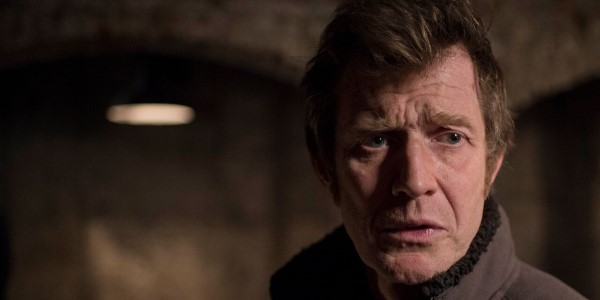
Blake (Ritson) was a friend of a friend and I saw his reel and really liked it so I was thrilled to get him. Then with Alice, Alice and I got to know each other through Twitter and we also had a mutual friend so we got together for a cup of tea and got on really well. So when Jamie wrote Ghosted, I thought it would be good for her and she was up for doing it. The rest of the casting for Ghosted was easy because, even though it’s a lot of people, when you have someone like Alice Lowe at the centre, anytime you approach somebody you can say, “I’m making a short with Alice Lowe.” She’s really talented and she’s now a director as well, although we shot before she made Prevenge.
Rather humblingly, after we shot Ghosted, she went off and wrote, directed, had a baby, and then released her feature film so if I think I’m doing well, I know I’m not doing as well as her (laughs). On Lock In, Nicholas Pinnock was a friend, I’d met him at an industry thing, him being a friend of a friend, and we just got on really well and I really responded to how he’s someone with great passion, determination and a sense of integrity, so I took the opportunity to work with him when Lock In came up.
Lucy (Boynton) was recommended by our first AD who had done a film with her and said, “She’s fantastic, you’ve got to consider her.” I was very fortunate in that regard since I hadn’t seen Sing Street at that point but then I saw it afterwards and thought, “Okay! That worked out quite well!” (laughs)
With a lot more people to work with, were there different challenges working on Ghosted after Bricks?
Neville Pierce: The biggest difference on Ghosted was much less time to prepare. It had much less money, much less time, and more moving parts. The benefit was having Savannah James-Bayly, who had produced Bricks, on board. We knew we could trust each other and work together really well. I think the nature of Ghosted coming together with a couple of weeks notice contrasted with how really well planned Bricks was.
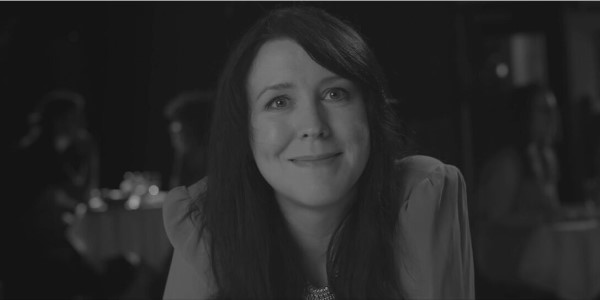
Ghosted had to be a little more light on its feet but that was useful for Lock In because even though it’s primarily one location, we did have to shoot outside, we had to use a car, a cherry picker, the shoot took longer, etc. so the light-on-its-feet, improvisational stuff we learnt from Ghosted was applied to Lock In even though they’re very different films.
Right. I want to back to the answer you gave regarding casting Jason Flemyng, you said to him back in 2006 or 2007 when Benjamin Button was shot that you wanted to make films – have you always wanted to be a filmmaker?
Neville Pierce: I don’t know (laughs), probably. Benjamin Button came out in 2008 so yeah it must have been 2007… that’s a little bit sobering. I don’t know at what point I decided I wanted to make films. It didn’t seem like a realistic thing to do when growing up. That’s a bit of a cliche since you often hear people say that they didn’t know they could make films but it just didn’t seem to me a thing you could aspire to do, so I wanted to be a journalist. Then I wanted to be a film journalist.
I always loved movies and I did journalism at university, thought about being a foreign correspondent but then thought that seemed too dangerous, so I thought, “You like movies, you like writing, maybe you could do something around this.” I guess it was during the process of working on movie magazines that I thought, well, let me try writing something. I wrote my first finished feature script in 2002 but then it just went in the drawer for years.
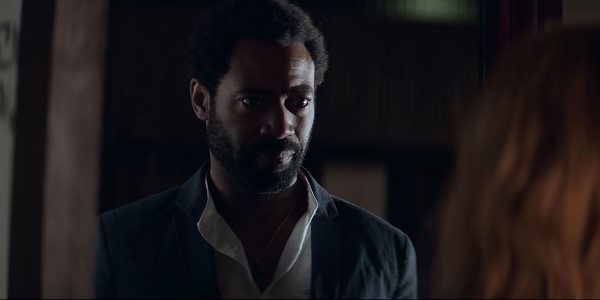
I met Jamie later and we wrote a feature script but that also went in the drawer for years, whilst I was editing Total Film magazine. There just wasn’t enough time but then I eventually realised that you’ve just gotta go for it. Also, I’d done a lot of stuff in film journalism which I really enjoyed and thought I’d never get better at, having learnt my limitations in journalism.
That sounds like the same transition from Dwayne Johnson’s wrestling career to movie star, where he felt he’d accomplished everything in wrestling.
Neville Pierce: (laughs) I wish I’d been as good at journalism as Dwayne Johnson was at wrestling.
You started film journalism about twenty years ago. As we’ve moved deeper into the Digital Age, what are some of the major changes you’ve seen happen to film journalism since then?
Neville Pierce: Some good, some bad. One of the good things is that it’s arguably more possible for people to write and get their stuff read by people because the internet has democratised stuff in that regard. The flip of that is that, because there’s so much stuff out there and so much of it is free, the standard of living as a journalist has gone down quite substantially. There’s less paid work. I’m sure plumbing would be in trouble if everyone went around and offered to fix boilers for free.
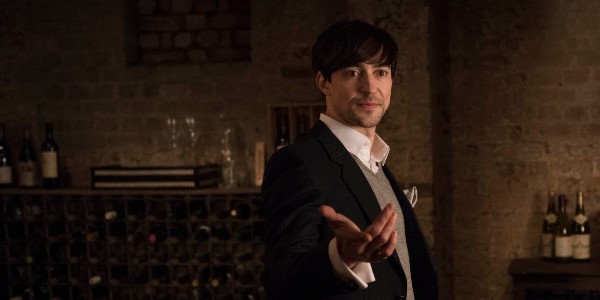
Something that’s become more pronounced in more recent years is the erosion of trust between journalist and filmmaker. I think there is trust between them but the “gotcha” culture of journalism where they’re trying to get their subjects to say something specific has resulted in click-bait headlines and lots of aiming for controversy. It feels like it’s about trying to trip people up rather than engage with them which then affects how much time people are willing to spend with journalists. It’s a balancing act as well though, you don’t want to just be talking about how wonderful people are and it’s nice to have some of those controlled stories broken down.
I imagine your career, having seen so many films, made you conscious about the micro-elements when it came to making your own films. For example, I listened to Jordan Peele who talked on the Nerdist podcast about being a first-time director and his actor Bradley Whitford told him it’s all about taste so what influenced him in making Get Out was his preferences as a student of film, what he liked about his favourite films and what he didn’t, so I’d like to know if you have a similar perspective. Has your career as a film journalist affected how you made your shorts?
Neville Pierce: One of the nice things about having interviewed a lot of people is that you learn a lot about how films are made. Though I think there’s no substitute for actually making the films but there are many things you learn, like knowing how to talk to actors and watching filmmakers direct them. If you’ve watched David Fincher giving notes to somebody, then that’s gonna help you. You pick things up even if it’s unconscious but it is all about taste and point of view.
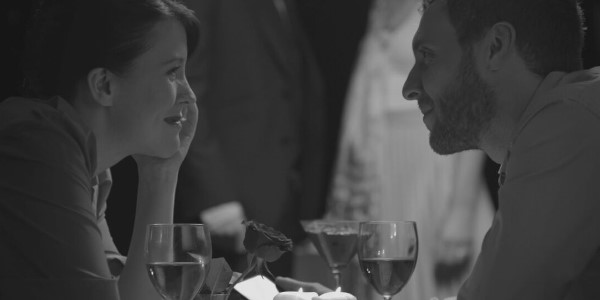
Having been a film journalist helped me with confidence in dealing with people but also stopped me from making films earlier because I was nervous and aware that the moment I started, my journalism career would inevitably take a backseat and maybe become something that I didn’t want to do again. It’s hard to go back to critiquing if my movies aren’t any good (laughs). I was aware that the films needed to hit a certain standard and that I’m starting a new career with these shorts, I don’t know if that answers your question or not.
It does because, as I understand, you’re preparing a feature-length directorial project and that’s obviously gonna be time consuming so do you think you’ll move entirely away from journalism?
Neville Pierce: I used to be like, “I must do one thing or the other” but the reality is you should do what interests you and you should worry less about what you are and worry more about what you do, because otherwise you can paralyze yourself. I’ll do journalism if I’m interested but ultimately I’d like to make feature films, ones that are successful enough to make more at least. I have enough films, things I’ve written, co-written, or optioned, that I could make enough films for at least the next 20 years. That’s the dream but I won’t rule out saying, “Anybody want somebody to interview some actors?” (laughs)
As you mentioned, there’s a lot of free content on the web in this age of film journalism, what do you think today’s freelance journalists need to do to build themselves a career where they’re paid for their work?
Neville Pierce: Not to be discouraging or not useful… I did my first bit of paid journalism in 1999 so how I started as a journalist versus how they start now? I don’t know. It’ll be so different. I imagine there are some of the same things maintained since then like if you’ve got good feature ideas, people will always want them. You probably need to start for yourself on a blog, then work your way up by writing for bigger and bigger ones.
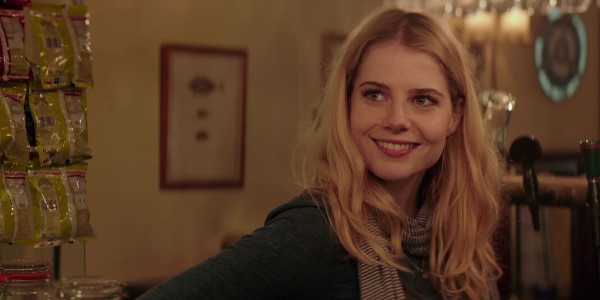
When I was an editor, I used to find people would ask me if they could write for Empire or Total Film and they’d not written for anybody. Being able to start by writing for yourself is a great opportunity that was less of a case back when I started. Another good way is to engage with people and editors on Twitter. If you’re funny or have good ideas, they might give you their time since the hardest thing about wanting to write for big magazines like Empire and Total Film is getting their attention. People should also know their outlets – know who you’re pitching for, know your target audience. Also, write as much as you can because the more you write, the better you’ll get. It’s dry advice but it’s true.
Some of the projects you have in the pipeline include a thriller named Packaged and an adaptation of a memoir, could you tell us how they’re progressing?
Neville Pierce: Packaged at the moment is out to cast so we’re just waiting to hear from different people, it’s one of those things that’s hard to predict how long it’ll take to be put together. The memoir I can’t really talk about yet since it’s a long way off from happening yet. One thing I have learnt in my career is don’t talk about future projects too much (laughs) because stuff will get changed, delayed, or moved around in ways that you can’t ever imagine.
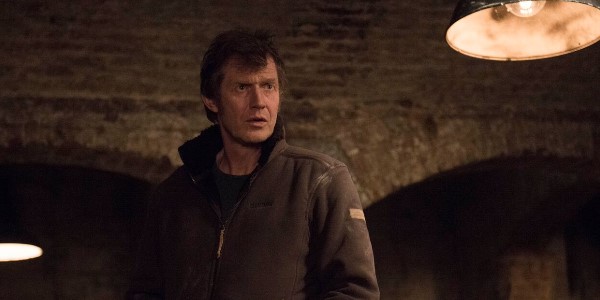
For reasons which are no-one’s fault, Packaged got delayed so I’ve gone off and written something else. I talked about this to my wife, asking which film should I work on next and she said “Why don’t you do the one that’s ready?” (laughs), which is the pragmatic attitude to have about these things.
So you must have known or heard about big projects that never came to fruition.
Neville Pierce: Yeah you see stuff get announced and then never happens. I’ve had friends who’ve had films in pre-production, they’ve been cast then someone’s pulled the plug of them. There’s a line in filmmaking between optimism and delusion which is quite thin and I can remember thinking “Well, whatever happened to them won’t happen to me” and then of course it does happen to you. Things go wrong.
It’s that Churchill quote, “Success is going from failure to failure with no loss of enthusiasm.” That’s pretty much filmmaking. The other day, I read an interview with screenwriter Fred Dekker who said “You need a teflon heart in this business” and I think that’s true. You fall in love with projects which don’t happen, but still, it’s better than a proper job (laughs).
Film Inquiry would like to thank Neville Pierce for taking the time to speak with us.
Bricks, Ghosted, and Lock In are available to watch now on Neville Pierce’s Vimeo channel. Click here to see the three short films.
Does content like this matter to you?
Become a Member and support film journalism. Unlock access to all of Film Inquiry`s great articles. Join a community of like-minded readers who are passionate about cinema - get access to our private members Network, give back to independent filmmakers, and more.
Musanna Ahmed is a freelance film critic writing for Film Inquiry, The Movie Waffler and The Upcoming. His taste in film knows no boundaries.













